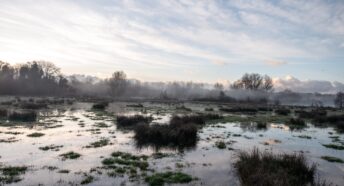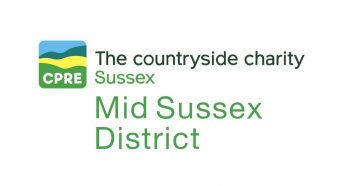Canterbury development challenge: your chance to help

Can you support two legal challenges aimed at saving hundreds of acres of countryside around Canterbury and cutting air pollution in the city?
Emily Shirley from Bridge and Michael Rundell from Wincheap hope to halt Corinthian’s Mountfield Park application south of Canterbury on the grounds on increased air pollution.
The application entails the building of 4,000 houses, roads, schools, a relocated and enlarged park-and-ride and possibly a relocated hospital set primarily on Grade 1 farmland.
Although the challenge was initially unsuccessful, Emily and Michael believe there are robust grounds to have the decision revisited in the Court of Appeal because of the increased levels of air pollution such a development would bring. Permission to appeal is therefore being sought.
The accompanying map shows the roads in Canterbury, marked red and dark blue, where it is believed air pollution is in breach of legal limits.
The second legal challenge concerns the Canterbury Local Plan, which was adopted in July this year.
It proposes 16,000 extra houses, new roads and associated car-accommodating policies.
It would create havoc on the roads, gobble up acres of beautiful countryside and worsen air pollution, say Emily and Michael.
A legal challenge was issued against the Plan on August 21. Emily and Michael are waiting to see if permission for the challenge has been granted.
Some £12,000 has been raised so far to help pay for both legal challenges, with a further £13,000 needed to reach the combined target of £25,000. This includes a Crowdjustice bid for £10,000, detailed solely for the second challenge and which has so far raised a little more than £2,000.
Please contribute if you can by sending a cheque to:
Kent Environment & Community Network
c/o Netherbury
Meadow Close
Bridge
Kent
CT4 5AT
Alternatively, you can contribute online at www.crowdjustice.com/case/canterburyairpollution
- A number of important documents have yet to emerge. For example, a rigorous transport plan and a finalised air-quality assessment. The latter is critical given that allocations at Teynham will feed extra traffic into AQMAs.
- There seems to be no coherent plan for infrastructure delivery – a key component of the plan given the allocations being proposed near the already crowded Junction 7.
- There seems to have been little or no cooperation with neighbouring boroughs or even parish councils within Swale itself.
The removal of a second consultation might have been understandable if this final version of the plan were similar to that being talked about at the beginning of the consultation process. It is, however, radically different in the following ways:
- There has been a major shift in the balance of housing allocations, away from the west of the borough over to the east, especially around the historic town of Faversham. This is a move that raises many concerns.
- A new large allocation, with accompanying A2 bypass, has appeared around Teynham and Lynsted, to which we are objecting.
- Housing allocations in the AONB around Neames Forstal that were judged “unsuitable” by the council’s own officers have now appeared as part of the housing numbers.
- Most of the housing allocations being proposed are on greenfield sites, many of them on Grade 1 agricultural land – a point to which we are strongly objecting.
Concerns about the rush to submit the plan
The haste with which the plan is being prepared is especially worrying given the concentration of housing in Faversham. If the town is to take a large amount of new housing, it is imperative that the policies concerning the area are carefully worked out to preserve, as far as possible, the unique nature of the town. The rush to submit the plan is likely to prove detrimental.
As Swale does not have a five-year land housing supply, it is open to speculative development proposals, many of which would run counter to the ideas contained in the current plan. Some are already appearing. This is a common situation, and one that, doubtless, is a reason behind Swale’s haste.
Our overriding fear, however, is that this emphasis on haste is ultimately going to prove counterproductive. This is because it is our view that the plan, in its current form, is unlikely to pass independent examination. We are urging Swale to listen to and act upon the comments being made about the plan and to return the plan to the council with appropriate modifications before submitting it to the Secretary of State.
Essentially, this means treating the current consultation not as the final one but as the ‘lost’ second consultation.
The consultation ends on Friday 30 April and we strongly urge residents to make their opinions known if they have not already done so.
Further information








